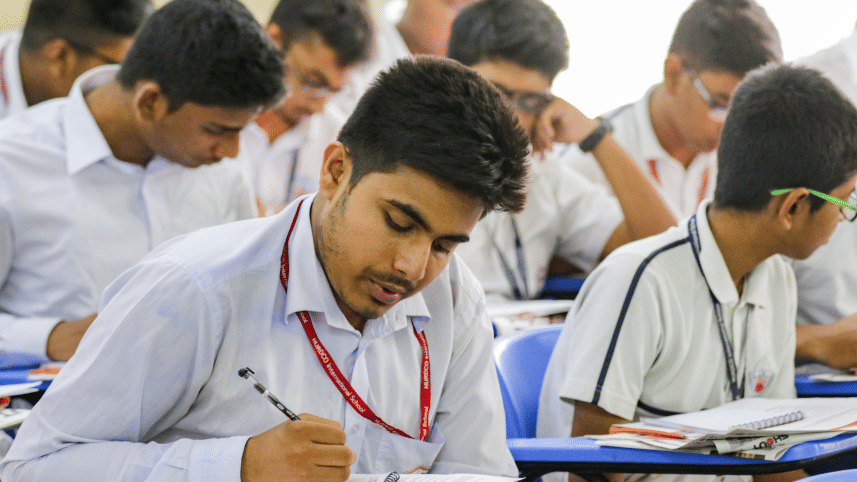The unwanted necessity of coaching centres

The rise of coaching centres has been a hotly-debated topic in education for a long time. Charging big fees and coercing students into buying guide books, they have only widened the education inequality.
Despite it all, in certain cases, coaching is essential for better learning. Given the current quality of education, a lion's share of students needs extra guidance to understand complex topics.
One of the major complaints in our classrooms is the shortage of time. Each period typically lasts 40 minutes. For teachers, it's difficult to properly deliver the lessons in such short time frames.
Unfortunately, adding more time to classes is a seemingly impossible task for schools, even when many conduct classes in two shifts. Faced with shortage of time and classrooms in schools, many students enrol in after-school coaching classes that typically last longer. This duration allows teachers to delve deeper into the concepts and allows room for classes to get interactive.
I have realised that classrooms are often chaotically monotonous affairs. The reasons are clear – the average teacher to student ratio in Bangladesh was 1:40 in 2020. Operating such large classes on their own gets naturally tough for teachers, when according to UNICEF, the standard ratio in classrooms should be 1:20.
In comparison, coaching classes have it better. Having smaller classes make teaching and learning more streamlined; teachers can easily repeat their lessons if anyone fails to grasp it. They can figure out a particular student's strengths or weaknesses, and work on them in a methodical way.
For reasons including, but not limited to, time allotment and teacher-student ratio, many teachers are more enthusiastic in their private tuition classes than in classrooms at school. Many even use classrooms as recruiting sessions, displaying just enough to woo students to their coaching classes. While that sounds unfair and morally wrong, people often fail to look at it from the teacher's perspective.
As sad as it sounds, teaching in Bangladesh is a heartlessly tough and low-paying career. Many don't have their Monthly Pay Orders (MPOs), so pay is uncertain. Nationally, our budget allocation for education is quite low, with the latest one being a paltry 1.83 percent of GDP, against the recommended 6 percent mark by UNESCO.
While increased education spending is not the silver bullet, it could go a long way to ensure teachers get decent salaries. Consequently, their dependence on coachings to feed their families would diminish. They might well put more effort into teaching within the classrooms. It might negate the need for coachings altogether, unless absolutely necessary for those willing. Even then, it should be done within school compounds, in school approved fees, so that students of all backgrounds can easily afford it.
References
1. New Age Bangladesh. July 2022. Provisions for coaching, tuition by teachers criticised.
2. The Daily Star. June 2022. Education budget only 1.83% of GDP.
3. UNICEF. April 2019. A World ready to learn: prioritizing quality early childhood education.
4. The Daily Star. April 2022. Invest in education to reduce inequality.
5. The Daily Star. June 2022. Can a new education law solve our problems?
Inqiad is a long suffering Manchester United fan and a self-proclaimed Targaryen. Contact him at inqiadali007@gmail.com
 For all latest news, follow The Daily Star's Google News channel.
For all latest news, follow The Daily Star's Google News channel.
Comments